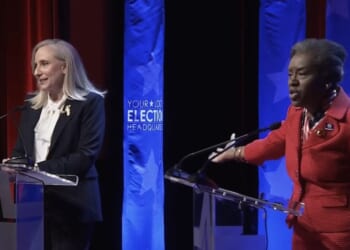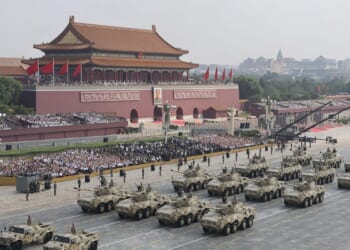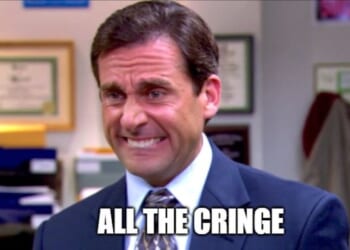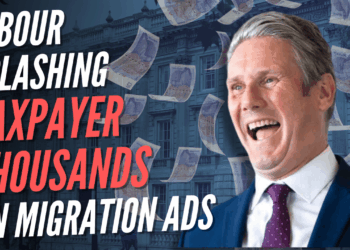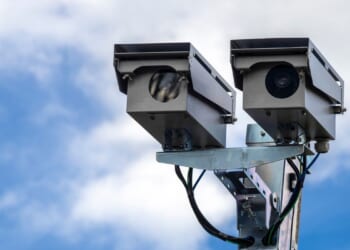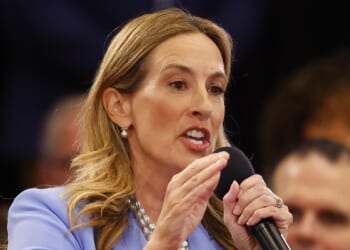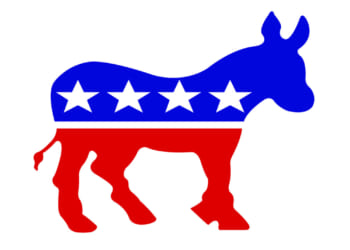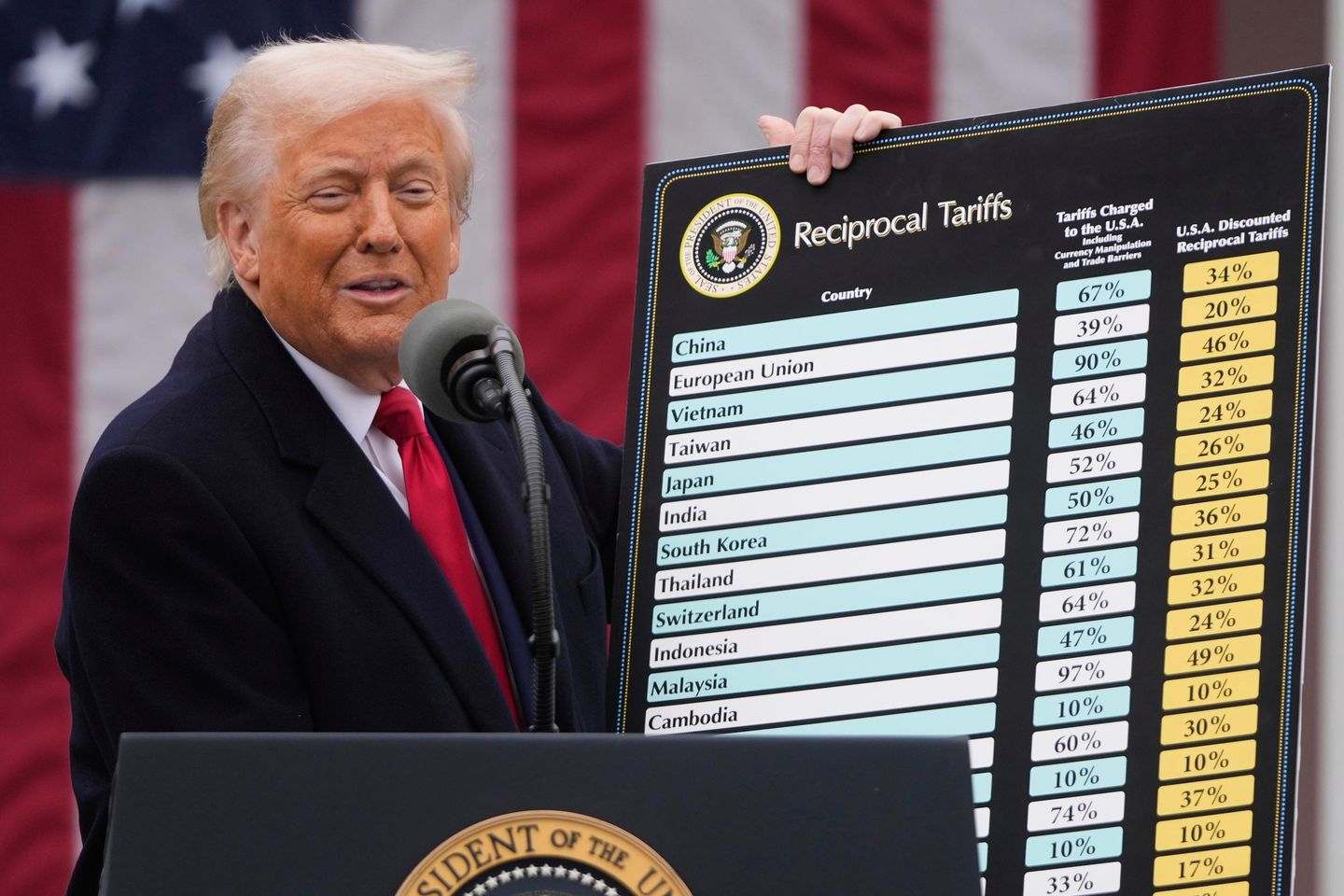
Small businesses that sued President Trump over his tariffs aren’t just looking to end them — they’re also hoping to get a refund from Uncle Sam to make up for their losses over the last months.
The Supreme Court will hear their case Wednesday, in what is shaping up as one of the big cases this term testing the limits of the president’s powers.
Michael McConnell, one of the lawyers for the five small businesses, said they’ve suffered serious setbacks since the president hiked tariffs, including one of the firms that’s teetering on bankruptcy.
“They can’t enter into contracts with any degree of confidence — that the rules of the game won’t be changed in the middle,” Mr. McConnell told The Washington Times’ “Court Watch” podcast. “These tariffs are literally putting companies out of business.”
He said that’s one reason why they hope the justices, who oftentimes wait on big decisions until the end of the term in June, speed an opinion on this case.
“We want a fast answer,” Mr. McConnell said, adding that until the court rules, Mr. Trump could issue new tariffs at any time.
The justices will hear two cases, Trump v. V.O.S. Selections Inc. and Learning Resources Inc. v. Trump.
At issue are a series of global tariffs Mr. Trump declared, as well as specific levies on China, Mexico and Canada that the president imposed because he said he didn’t see enough action being taken to curb the flow of fentanyl into the U.S.
Tariffs are a tax on foreign goods that are brought into U.S. markets. The importer of record, often a U.S. company, pays the duty and not foreign governments.
Mr. Trump has long been a fan of the tool, and that affinity has grown as he’s watched other nations rush to renegotiate trade terms and seen cash pour into the U.S. treasury. Customs duties rose $118 billion in the just-completed fiscal year 2025.
But experts said there are even bigger stakes than Mr. Trump’s economic agenda.
Mr. McConnell has called the cases the biggest test of separation of powers issues since the 1952 Youngstown decision that struck down President Truman’s seizure of steel mills.
Truman said he needed to surmount a strike and keep the mills operating given the ongoing Korean war, but the justices, in a 6-3 decision, said the president couldn’t commandeer private property without express authorization from Congress.
In this instance, Mr. Trump says he’s acting under the International Emergency Economic Powers Act to issue the tariffs. He says the trade deficit and the flow of fentanyl both trigger emergency tariff powers under that law.
The law doesn’t actually use the word tariffs, but U.S. Solicitor General D. John Sauer says it does grant the president the ability to “regulate importation,” which is good enough.
“The power to ‘regulate importation’ encompasses the power to impose tariffs or duties on imports,” he told the justices in briefs.
A series of lower courts disagreed. They include a district court, the U.S. Court of International Trade and the Court of Appeals for the Federal Circuit.
The law has never been used in this manner by a president to impose tariffs, said Mr. McConnell, himself a former federal appeals court judge.
“It is about economic sanctions on foreign nations. It is not about taxation on Americans,” he said.
Sector-specific tariffs on cars, steel and aluminum were imposed under alternate authorities and are not at risk in this legal fight.
Treasury Secretary Scott Bessent has said if the court doesn’t rule until June and it ends up striking down the tariffs, the government could have to refund $1 trillion in revenue.
• Stephen Dinan and Thomas Howell Jr. contributed to this report.

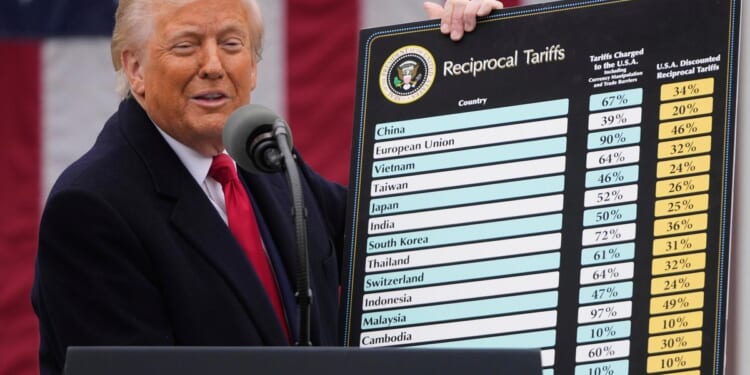
![Scott Bessent Explains The Big Picture Everyone is Missing During the Shutdown [WATCH]](https://www.right2024.com/wp-content/uploads/2025/11/Scott-Bessent-Explains-The-Big-Picture-Everyone-is-Missing-During-350x250.jpg)


